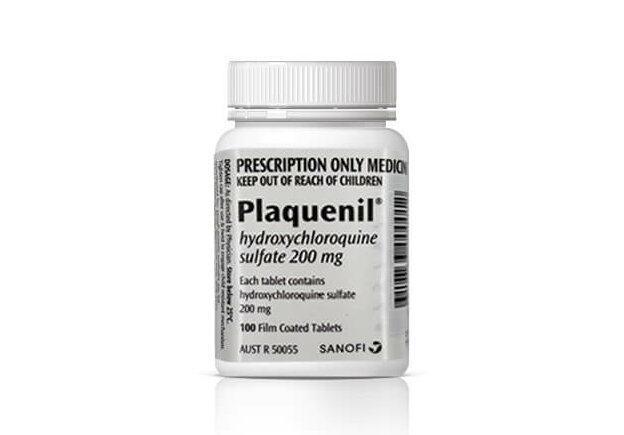Plaquenil (generic name: hydroxychloroquine) Plaquenil can be prescribed for several conditions:
- Plaquenil can be prescribed for the treatment and control of symptoms of malaria attacks
- Plaquenil is prescribed to treat lupus erythematosus
- Plaquenil can be prescribed for the treatment of rheumatoid arthritis
Hydroxychloroquine belongs to the aminoquinoline group. It works to treat rheumatoid arthritis and systemic lupus erythematosus as a disease-modifying anti-rheumatic drug (DMARD), by decreasing the levels of activity of the immune system.
Unlike painkillers, DMARDs work in rheumatoid arthritis by suppressing the excessive activity of the immune system that causes the inflammation of the joints. This can actually slow the rate of progression of the underlying disease. It is not fully understood how hydroxychloroquine works, but it reduces the inflammation in the joints and the associated swelling and pain . However, it doesn’t reverse any structural damage to the joints that has already occurred.
DMARDs are used when non-steroidal anti-inflammatory drugs (NSAID) painkillers do not provide sufficient relief from the pain of the arthritis. However, unlike NSAIDs, they can take up to six months to produce their full effect, so they don’t provide immediate relief from the pain.
This text is for informational purposes only. Please consult your doctor or pharmacist before using any medication.
Please read the Product Insert that comes with the medication.
Common side effects may include:
- headache, dizziness, ringing in the ears
- nausea, vomiting, stomach pain
- loss of appetite, weight loss
- mood changes, feeling nervous or irritable
- skin rash or itching
- hair loss.
Not all side effects are listed here. If these or any other unexpected side effects occur or worsen, consult a healthcare provider.
Plaquenil is indicated for the treatment of discoid and systemic lupus erythematosus and rheumatoid arthritis. Both lupus erythematosus and rheumatoid arthritis are caused by overactivity in the autoimmune system. Systemic lupus erythematosus (SLE) can affect multiple areas of the body, including the skin and internal organs. Reumatoid arthritis usually affects the joints, although inflammation can affect other areas too.
It is also used for the suppression and treatment of acute attacks of malaria caused by mosquito-borne parasites.












